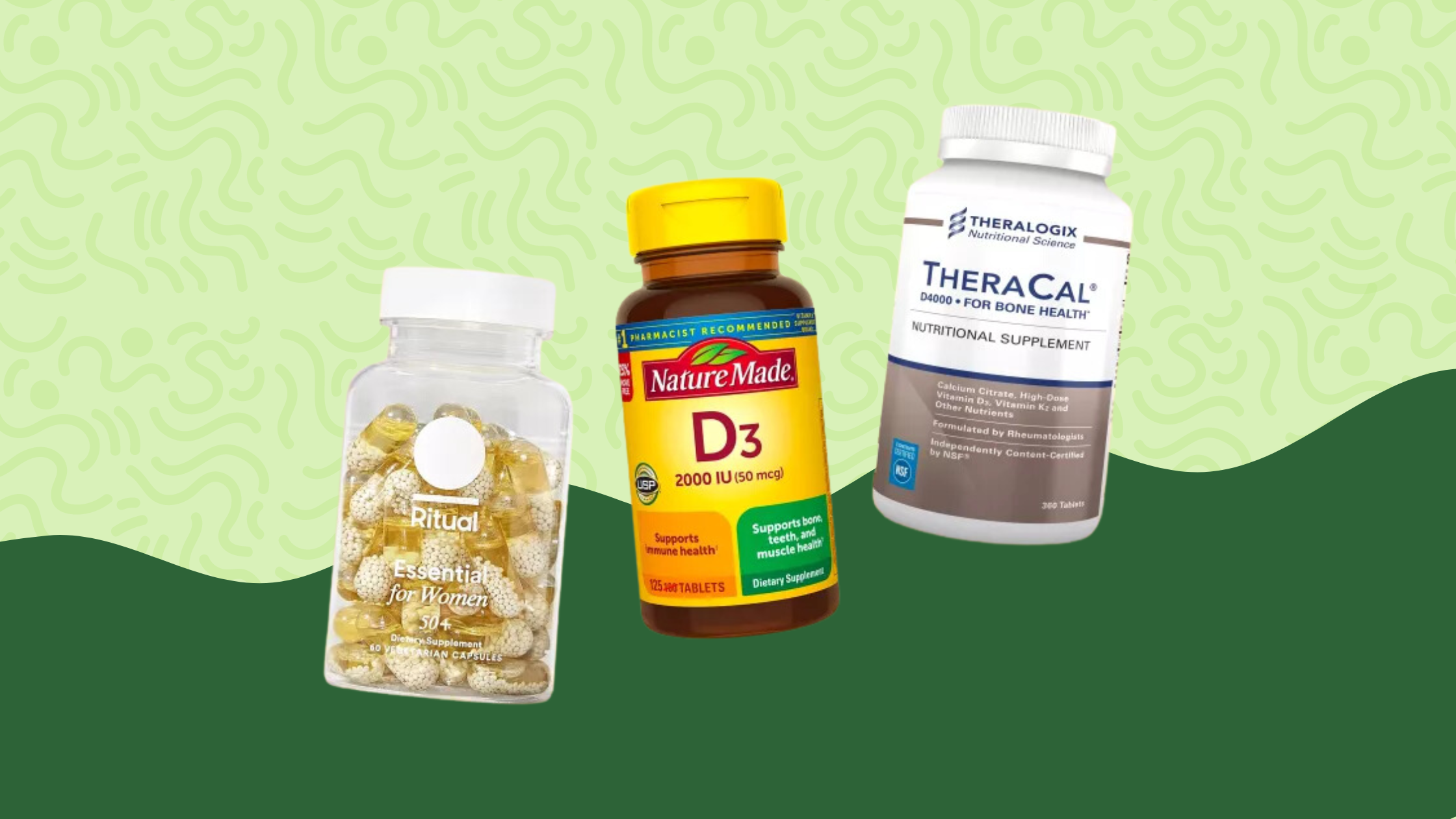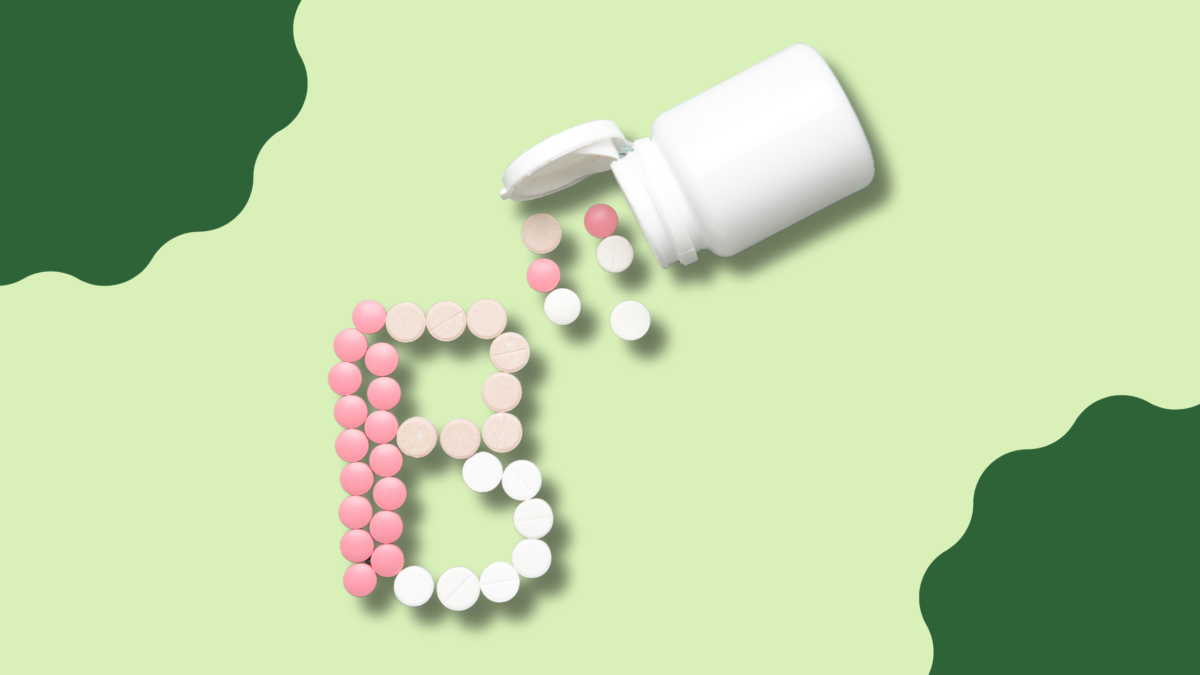


Medically Reviewed By Margaret Etudo, BPharm. Written By The Vitamins For Woman Team.
Which B vitamins should I take as a pregnant mom? This article will help you understand why B vitamins are important and some foods you should include in your diet.
Eating healthy during pregnancy is one of the best decisions you can make for yourself and your baby. However, the ingested food may not contain sufficient amounts of the macro and micronutrients you need. This is where prenatal supplements come in.
The B vitamins comprise eight vitamins, including vitamins B1, B2, B3, B5, B6, B9, and B12. These essential vitamins are water-soluble, readily absorbed, and can not be stored in your body. You would need to replenish them through your daily diet. They play a major role in your nutrition during pregnancy.
Now, let’s take a look at natural food sources, functions, and the recommended daily intake of these vitamins.

Vitamin B1 plays a significant role in your baby’s brain’s growth and optimal functioning. As an expecting mom, you should aim to consume 1.4 milligrams (mg) of vitamin B1 daily.
Some functions of vitamins B-1 include:
Foods that contain vitamin B1 include potatoes, brown rice, eggs, beans, lentils, nuts, and vitamin-fortified cereals.
Vitamin B2 is responsible for maintaining healthy skin, nails and hair. Pregnant women should take 1.4 milligrams (mg) of vitamin B2 daily.
Some functions of vitamins B-2 include:
Foods that contain vitamin B2 include leafy green vegetables, milk, cheese, yoghurt, kidney, and eggs.
Vitamin B3 or niacin, exists in food in different forms – nicotinic acid and nicotinamide. Your body can also produce vitamin B3 from an amino acid called tryptophan. The recommended daily amount (RDA) for pregnant women is 18 milligrams (mg).
Doctors advise not to take more than 35 milligrams (mg) during pregnancy. Some side effects of niacin overconsumption include bloating, nausea, diarrhoea, and liver damage.
Some functions of vitamins B-3 include:
Foods that are excellent sources of vitamin B3 include meat, fish, green peas, peanuts, and liver.
Your body requires vitamin B5 to make coenzyme A (CoA). CoA is responsible for breaking down food to produce energy. As a pregnant woman, you need about 6 milligrams (mg) of vitamin B5 daily.
Some functions of vitamins B-5 include:
Vitamin B5 can be found in foods like egg yolks, avocados, chicken, mushrooms, oats, and sweet potatoes.
Vitamin B6 exists in three significant compounds, with pyridoxine being the most common. It also exists in coenzyme forms. These activate over 100 essential processes, including enzymatic reactions like protein metabolism. Pregnant women should take 1.9 milligrams (mg) of vitamin B6 daily.
Some functions of vitamins B-6 include:
Common foods rich in vitamin B6 are bananas, walnuts, almonds, poultry, dried fruits, beef liver, spinach, and whole wheat bread.
Vitamin B7, known as biotin, is an essential enzyme responsible for digestion and metabolism. Biotin deficiency is common during pregnancy. If you are pregnant, you should ensure that you eat lots of biotin-rich foods. The recommended daily amount (RDA) of biotin is 30 micrograms (mcg).
Some functions of vitamins B-7 include:
You can find biotin in potatoes, spinach, liver, sardines, oats, cheese, avocado, milk, and eggs.
Vitamin B9 can be found in folate, which occurs naturally in food and folic acid which you can find in synthetic forms like supplements. You should know that pregnant women should take 600 micrograms (mcg) daily respectively.
Some functions of vitamins B-9 include:
Natural Sources of folic acid include oranges, lemons, beans, nuts, dark leafy greens, seafood, and green peas.
Read more: Folic acid and pregnancy
Vitamin B12, or cobalamin, is often combined with vitamin B6 during pregnancy. If you are pregnant, you should take 2.6 micrograms (mcg) of cobalamin daily.
Some functions of vitamins B-12 include:
Natural Sources of vitamin B12 include fish, meat, eggs, milk, and fortified cereals.
Prenatal supplements often contain the B vitamin complex. They are a great addition to your routine, and supply your body with the right amounts of nutrients. However, they should not replace a healthy and balanced diet during your pregnancy. If you have questions concerning the supplements you are considering or already taking, speak to your doctor as soon as possible.

medically reviewed by margaret etudo, BPharm. written by the vitamins for woman team.
hey, can u tell me if thiamine is gud for stress? heard it somewhere n now readin ur article made me curious haha. Thanks, Vitamins For Woman!
Yeah, Kathy, B-1 can help with stress by supporting the nervous system. Pretty cool stuff!
interesting article on B vits. always looking for ways to optimize my diet for better workouts. didn’t know much about B-7 before this. thanks for sharing!
I appreciate the breakdown of each B vitamin, but I believe there’s a minor discrepancy in the molecular structure of B-12 you’ve described. Cobalamin actually has a unique corrin ring, which wasn’t mentioned. It’s crucial for understanding its function in the body.
love how you broke everything down, makes it so much easier to understand. always confused about all these vitamins, so this helps a lot!
so is like vitamin b-12 good for staying alert? could use something during those long gaming nights. anyone knows?
While B-vitamins are indeed essential, it’s important to note that over-supplementation can lead to unnecessary health complications. It’s always better to aim for a balanced diet first. Synthetic supplements should only be considered in deficiency states or specific health conditions as advised by health professionals.
if i take all these B vitamins, will i b-coming superhuman or just pee them all out? asking for a friend haha
Is there a significant difference in absorption rates between natural and synthetic forms of these vitamins? I’m particularly interested in B-12.
all these vitamins sound great and all, but do they really work or is it just a big scam to make us buy more pills? kinda hard to believe everything you read online.
[…] in healthy women because the division of cells in a developing fetus requires biotin. This B vitamin helps in producing essential carboxylases that are […]
[…] into this world is a heroic feat, and we are dedicated to supporting you with the best prenatal vitamins and supplements, ensuring proper nutrition during your pregnancy. Our selection focuses on health, […]
Thank you for your sharing. I am worried that I lack creative ideas. It is your article that makes me full of hope. Thank you. But, I have a question, can you help me?
Thank you, your article surprised me, there is such an excellent point of view. Thank you for sharing, I learned a lot.
I don’t think the title of your article matches the content lol. Just kidding, mainly because I had some doubts after reading the article.
Your point of view caught my eye and was very interesting. Thanks. I have a question for you.